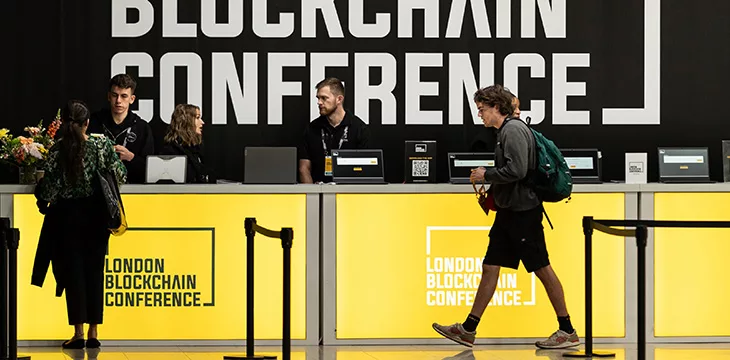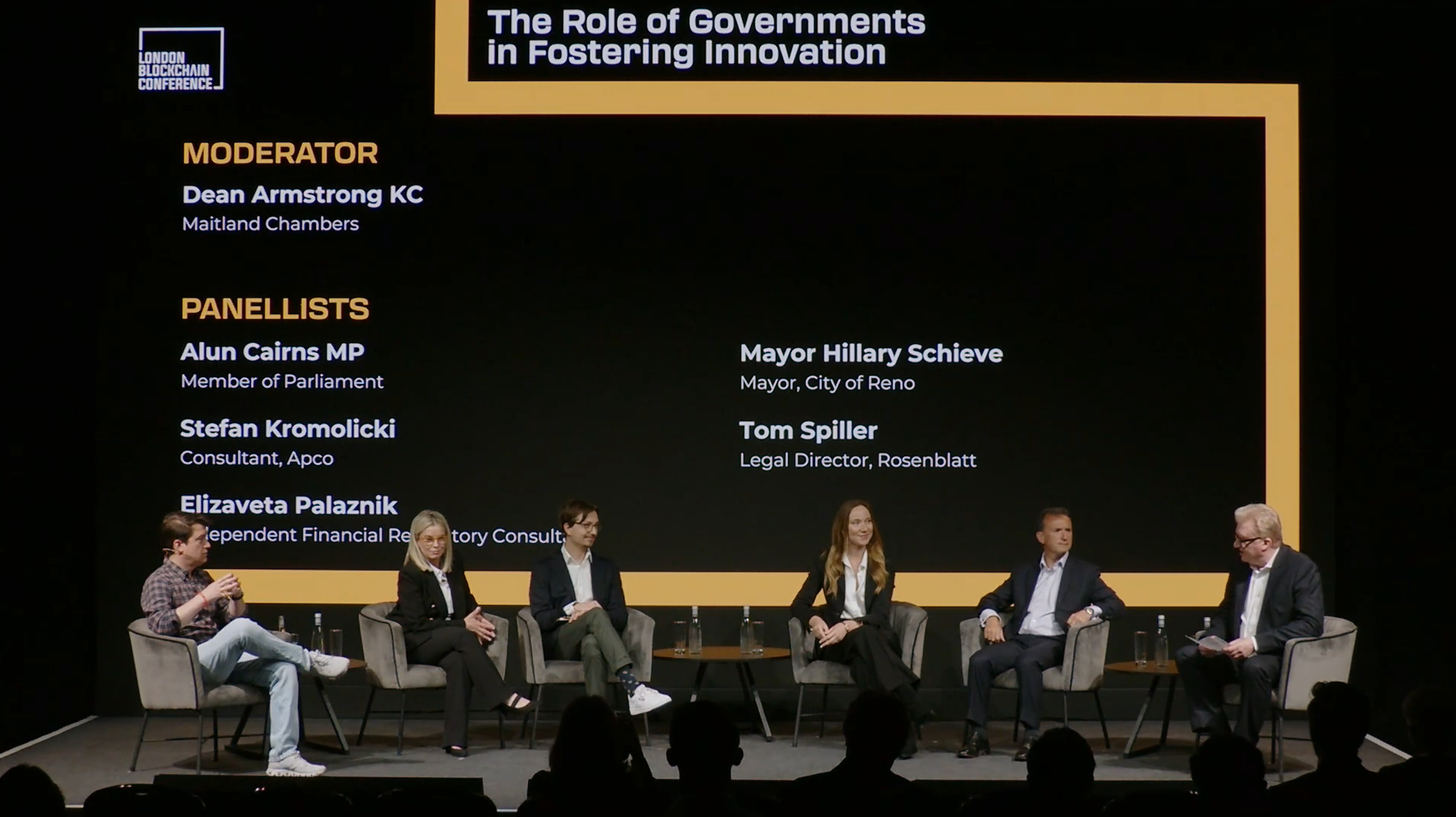Tech
Highlights from day two of the London Blockchain Conference 2024: Driving innovation by ‘leaning in’ to blockchain technology

A general buzz took over ExCel London at the start of Day 2 of London Blockchain Conferenceevident thanks to a winding queue that formed outside the main stage half an hour before anyone arrived.


The reason was evidently the entrepreneur Steven Bartlett, who appeared on stage for a fireside chat about business, blockchain and technology. Bartlett is the founder of numerous startups and his business acumen has seen him named as one of the “Dragons” investors in the BBC’s Dragon’s Den.
Bartlett, who was drawn to his usual “do not disturb” window before 10am by the Blockchain Conference in London, spoke about seeing blockchain from his vantage point (comparing its current phase to the early days of social media) and giving his predictions for the “killer use case” of blockchain (gaming).
From the opening keynote, day two saw a continuous list of experienced and esteemed speakers and panelists take to the stage.

In the morning the panel on the “Role of governments in promoting innovation” saw the participation of a member of the United Kingdom Parliament Alun Cairns MP flanked by a legal strongman Dean Armstrong KC by Maitland Chambers, legal director of Rosenblatt Tom SpillerAPCO consultant Stefan KromolickiMayor of the City of Reno Hillary Schieve and independent financial regulatory advisor Elizaveta Palaznik. The panel discussed how, or if, effective government policymaking can play a role in promoting growth and social progress.
Elsewhere in the day, a panel of technologists from Identity Innovator Babbage Project took to the stage to discuss the future of identity, contracts and assets on the MetaNet. Expanding on a common theme throughout the conference, interoperability is key to realizing the all-encompassing vision of blockchain technology. Offering a digital identity solution makes no sense if that digital identity is isolated from the systems that could use it, and a smart contract is little more than a digitized paper document if it cannot interact, for example, with an accounting system that will be able to unlock the payment at the time of execution of the contract.
Interoperability took center stage again later this afternoon Ijeoma Okolidirector of the Digital Economy Initiative, was interviewed in a fireside chat by Stefania Barbaglio, the founder of Casseiopeia. A former financial lawyer, Okoli has a lot to say about the state of regulation in both cases AI and blockchain. He told the crowd that as lawmakers race to support regulatory frameworks applicable to both technologies, there is bound to be inconsistencies between jurisdictions. This is a challenge because these technologies, by their nature, enable transactions that cannot be clearly framed in one jurisdiction or another.
One of the most entertaining sessions of the day occurred under the careful management of the moderator and journalist Carlo Miller. Miller explored the various consensus mechanisms underlying the various blockchains on the market: proof of work, proof of stakesand proof of authority. Miller decided to start the discussion by assigning each of his three panelists to explain a different mechanism.
Gregory Wardco-founder and chief development officer of SmartLedger Solutions, was asked to explain the proof of work. Kevin AlkemaCEO of Bitcoin Minor Sales, he had the unenviable task of being in charge of the proof of stake defense despite being, as Miller says, a proof worker at heart.
Jake Campton, head of communications and project management at Vechain, was given the task of explaining the proof of authority, used by Vechain. You explained that in proof of authority there is no competitive aspect to the consensus mechanism: instead there are KYC nodes. It’s a lesser-known mechanism, but Campton points out that it’s almost a permutation of proof-of-stake.
Starting from this presumption, what followed was an in-depth and experience-based discussion about the various models and their advantages and disadvantages. It even culminated in an impromptu survey to the public: If you were starting a business and wanted to use blockchain, would you rather use proof of work or proof of authority? In what may be a reflection of the strength of the discussion, and despite taking place in front of an audience that is probably much more familiar with the proof of work, the “proof of authority” option gets the support of about a quarter of hands in the room.
The second day concluded with a keynote presentation by Tibor Merey, CEO and partner of Boston Consulting Group. The topic was deceptively simple: taking place on the Best Practices for Enterprise Adoption track, Merey examined industry case studies and practical applications of blockchain to try to get to the bottom of the eternal question: what is the difference between failed startups and unicorns of success? the world? Merey draws on an impressive wealth of blockchain experience, based on the more than 150 blockchain and Web3 projects that Boston Consulting Group has advised on in the enterprise, and it was clear from the lively (and competitive) questions and answers at the end that the His insights were much appreciated.
Watch: Day 1 recap on #LDNBlockchain24
New to blockchain? Check it out on CoinGeek Blockchain for Beginners section, the definitive resource guide to learn more about blockchain technology.
